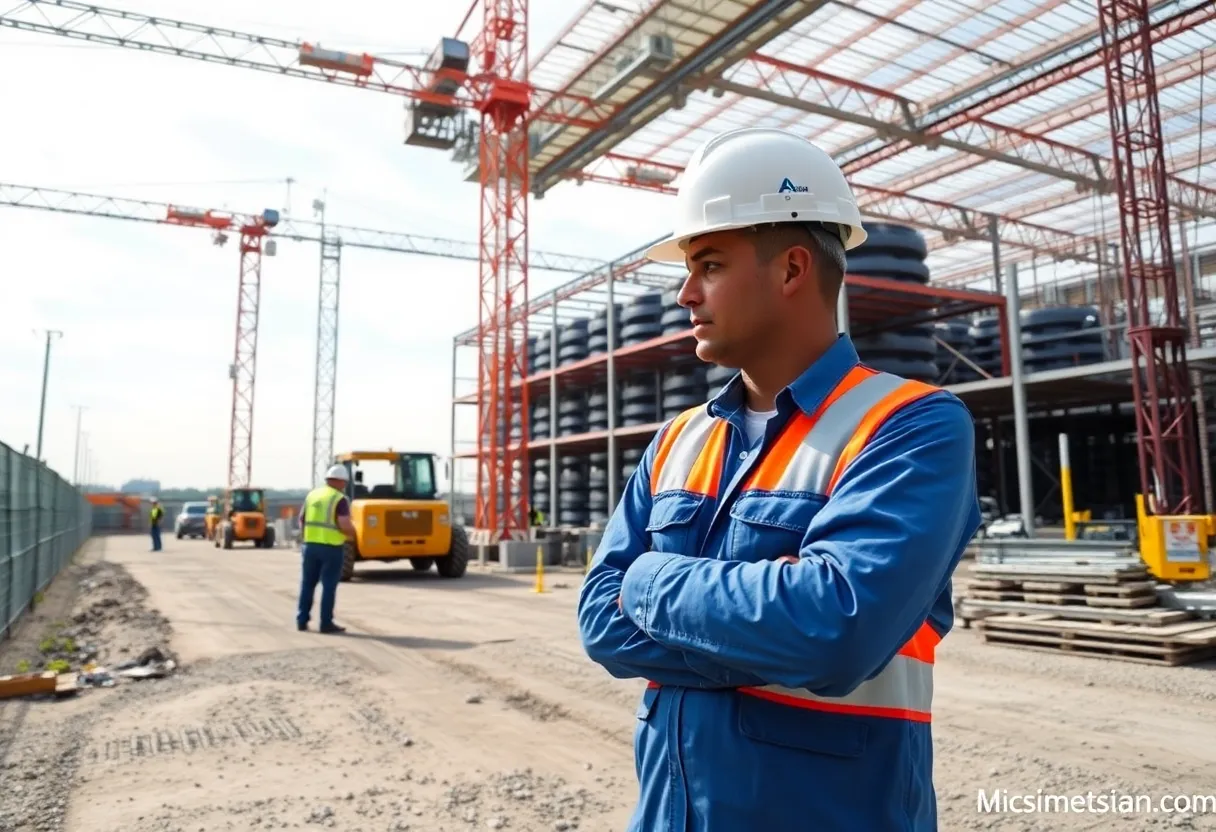News Summary
A recent raid by U.S. Immigration and Customs Enforcement (ICE) at Hyundai’s battery plant construction site in Georgia has led to the detention of approximately 475 workers, including many South Koreans. This event has sparked protests in South Korea and raised fears about its implications for U.S.-South Korea relations and foreign investment. Local officials are caught between promoting economic growth and enforcing strict immigration policies, causing uncertainty for future investments from South Korean companies.
Ellabell, Georgia – A recent raid by U.S. Immigration and Customs Enforcement (ICE) at Hyundai’s electric vehicle battery plant construction site has raised significant concerns regarding foreign investment in the United States. On September 4, 2025, ICE detained approximately 475 workers, including over 300 South Koreans, as part of a crackdown on immigration violations at the facility operated by HL-GA Battery Co., a joint venture between Hyundai and LG Energy Solution. This incident has prompted protests in South Korea and sparked fears about the broader implications for foreign businesses operating in the U.S.
The raid targeted a critical component of Hyundai’s $7.6 billion investment project in Georgia, anticipated to create approximately 8,500 jobs. The battery plant is part of a larger strategic vision for Georgia as the “electric mobility capital of America.” Concerns have arisen regarding the potential delays this raid could cause to ongoing and future investment projects, particularly with the relationship between South Korean companies and the U.S. coming under scrutiny.
Georgia Governor Brian Kemp has historically sought to attract foreign investment while simultaneously supporting strict immigration enforcement policies. Following the raid, Kemp’s office reiterated that Georgia would enforce all state and federal immigration laws and emphasized the expectation that businesses comply with these regulations. The dual approach of promoting economic growth while tightening immigration controls has become increasingly complex in light of this incident.
Protests and Broader Economic Impact
The raid has not only fueled anger and concern in the U.S. but also triggered protests in South Korea. Demonstrators have rallied against the detention of South Korean workers, highlighting tensions around U.S. immigration policies and their potential impact on bilateral relations. South Korean businesses are now re-evaluating work-related travel to the U.S. and have halted activities at at least 22 construction sites, weighing the risks of potential future raids.
Experts in South Korea are voicing worries that the treatment of their workers could lead companies to shift investments to regions with friendlier policies, such as Latin America and Europe. The economic relationship between the U.S. and South Korea is significant, with bi-lateral trade totaling $242.5 billion in goods and services last year. The paradox of encouraging foreign investment while enforcing strict immigration policies poses a dilemma for both local and national governments.
Implications for Future Investments
Analysts predict that the immigration crackdown in the U.S. may make companies more cautious about investing in this market due to the risks involved. This concern is amplified by the large-scale investments from South Korean businesses, such as Samsung Electronics, indicating a fragile balance between immigration enforcement and the desire to attract foreign capital.
The ongoing situation at Hyundai’s plant raises critical questions about the long-term effects on U.S.-South Korea relations, particularly in areas concerning foreign capital investment and immigration policies. There is growing apprehension that this incident could deter South Korean companies from pursuing further opportunities in the U.S., citing a need for a more favorable and stable environment for investment.
The raid at Hyundai’s facility serves as a stark reminder of the complexities facing foreign investors in the U.S. market, setting a precedent that could influence decisions about where to allocate resources within the global economy. As the dynamics of immigration and investment policies continue to evolve, stakeholders on both sides are monitoring the repercussions of this event closely.
Deeper Dive: News & Info About This Topic
- Los Angeles Times
- The New York Times
- ABC News
- Google Search: Hyundai Ellabell Georgia raid
- NBC News
- Wikipedia: Immigration in the United States

Author: STAFF HERE AUGUSTA WRITER
The AUGUSTA STAFF WRITER represents the experienced team at HEREAugusta.com, your go-to source for actionable local news and information in Augusta, Richmond County, and beyond. Specializing in "news you can use," we cover essential topics like product reviews for personal and business needs, local business directories, politics, real estate trends, neighborhood insights, and state news affecting the area—with deep expertise drawn from years of dedicated reporting and strong community input, including local press releases and business updates. We deliver top reporting on high-value events such as Arts in the Heart Festival, Westobou Festival, and Masters Week. Our coverage extends to key organizations like the Augusta Metro Chamber of Commerce and Greater Augusta Arts Council, plus leading businesses in manufacturing and healthcare that power the local economy such as Textron Specialized Vehicles, Cardinal Health, and Nutrien. As part of the broader HERE network, including HEREAtlanta.com and HERESavannah.com, we provide comprehensive, credible insights into Georgia's dynamic landscape.


